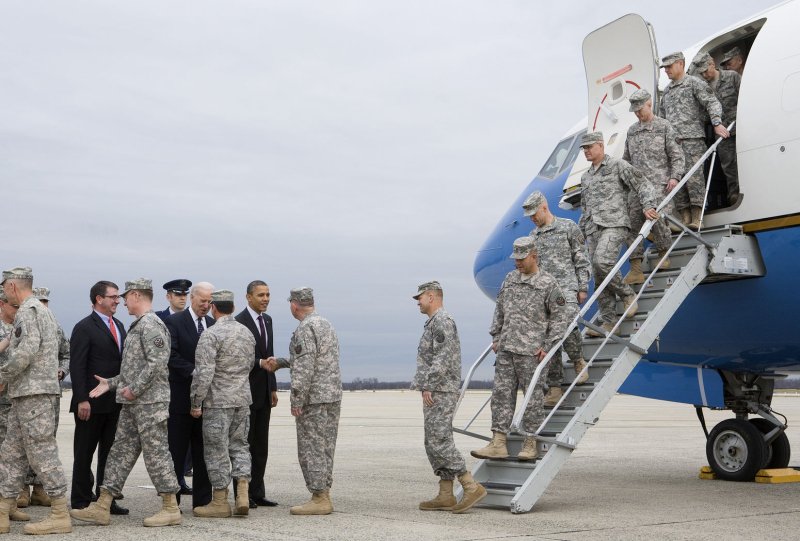U.S. President Barack Obama participates in a ceremony to mark the return of the United States Forces-Iraq Colors and the end of the Iraq war at Joint Base Andrews in Maryland on December 20, 2011. The last remaining US troops left Iraq on December 18 officially ending the nearly nine year war. UPI/Kristoffer Tripplaar/POOL |
License Photo
WASHINGTON, Dec. 30 (UPI) -- Washington has no intention of getting in the middle of the political turmoil gripping a post-war Iraq, a spokeswoman for the U.S. State Department said.
Iraqi lawmakers are trading barbs following the end of the U.S. military engagement there. Iraqi Prime Minister Nouri al-Maliki wants the country's vice president arrested on terrorism charges, a move that his adversaries say is pushing the country toward civil war.
Victoria Nuland, a spokeswoman for the U.S. State Department, said Washington was encouraging Iraqi political blocs to address differences at the negotiating table.
Influential Shiite cleric Moqtada Sadr, whose supporters have key positions in the Iraqi government, called for new elections though others have said dialogue is the best course of action.
Nuland said that apart from encouraging political talks between rival groups in Iraq, the issue was largely an Iraqi matter they need to settle internally.
"I think we're not going to get into the middle of this and dictate one way or the other," she said. "Clearly, the Iraqi political groups need to sit down together and work this through in a manner that is consistent with Iraq's constitution and their commitments to each other."





